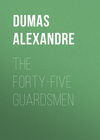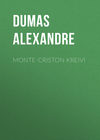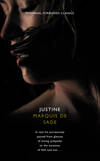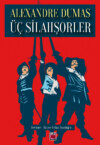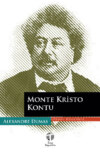Kitabı oku: «The Vicomte De Bragelonne», sayfa 8
Chapter XIV. In which the King and the Lieutenant each give Proofs of Memory
When the king, like all the people in the world who are in love, had long and attentively watched disappear in the distance the carriage which bore away his mistress; when he had turned and turned again a hundred times to the same side and had at length succeeded in somewhat calming the agitation of his heart and thoughts, he recollected that he was not alone. The officer still held the horse by the bridle, and had not lost all hope of seeing the king recover his resolution. He had still the resource of mounting and riding after the carriage; they would have lost nothing by waiting a little. But the imagination of the lieutenant of the musketeers was too rich and too brilliant; it left far behind it that of the king, who took care not to allow himself to be carried away to such excess. He contented himself with approaching the officer, and in a doleful voice, "Come," said he, "let us be gone; all is ended. To horse!"
The officer imitated this carriage, this slowness, this sadness, and leisurely mounted his horse. The king pushed on sharply, the lieutenant followed him. At the bridge Louis turned around for the last time. The lieutenant, patient as a god who has eternity behind and before him, still hoped for a return of energy. But it was groundless, nothing appeared. Louis gained the street which led to the castle, and entered as seven was striking. When the king had returned, and the musketeer, who saw everything, had seen a corner of the tapestry over the cardinal's window lifted up, he breathed a profound sigh, like a man unloosed from the tightest bonds, and said in a low voice:
"Now then, my officer, I hope that it is over."
The king summoned his gentleman. "Please to understand I shall receive nobody before two o'clock," said he.
"Sire," replied the gentleman, "there is, however, some one who requests admittance."
"Who is that?"
"Your lieutenant of musketeers."
"He who accompanied me?"
"Yes, sire."
"Ah," said the king, "let him come in."
The officer entered. The king made a sign, and the gentleman and the valet retired. Louis followed them with his eyes until they had shut the door, and when the tapestries had fallen behind them, – "You remind me by your presence, monsieur, of something I had forgotten to recommend to you, that is to say, the most absolute discretion."
"Oh! sire, why does your majesty give yourself the trouble of making me such a recommendation? It is plain you do not know me."
"Yes, monsieur, that is true. I know that you are discreet; but as I had prescribed nothing-"
The officer bowed. "Has your majesty nothing else to say to me?"
"No, monsieur; you may retire."
"Shall I obtain permission not to do so till I have spoken to the king, sire?"
"What do you have to say to me? Explain yourself, monsieur."
"Sire, a thing without importance to you, but which interests me greatly. Pardon me, then, for speaking of it. Without urgency, without necessity, I never would have done it, and I would have disappeared, mute and insignificant as I always have been."
"How! Disappeared! I do not understand you, monsieur."
"Sire, in a word," said the officer, "I am come to ask for my discharge from your majesty's service."
The king made a movement of surprise, but the officer remained as motionless as a statue.
"Your discharge-yours, monsieur? and for how long a time, I pray?"
"Why, forever, sire."
"What, you are desirous of quitting my service, monsieur?" said Louis, with an expression that revealed something more than surprise.
"Sire, I regret to say that I am."
"Impossible!"
"It is so, however, sire. I am getting old; I have worn harness now thirty-five years; my poor shoulders are tired; I feel that I must give place to the young. I don't belong to this age; I have still one foot in the old one; it results that everything is strange in my eyes, everything astonishes and bewilders me. In short, I have the honor to ask your majesty for my discharge."
"Monsieur," said the king, looking at the officer, who wore his uniform with an ease that would have caused envy in a young man, "you are stronger and more vigorous than I am."
"Oh!" replied the officer, with an air of false modesty, "your majesty says so because I still have a good eye and a tolerably firm foot-because I can still ride a horse, and my mustache is black; but, sire, vanity of vanities all that-illusions all that-appearance, smoke, sire! I have still a youthful air, it is true, but I feel old, and within six months I am certain I shall be broken down, gouty, impotent. Therefore, then, sire-"
"Monsieur," interrupted the king, "remember your words of yesterday. You said to me in this very place where you now are, that you were endowed with the best health of any man in France; that fatigue was unknown to you! that you did not mind spending whole days and nights at your post. Did you tell me that, monsieur, or not? Try and recall, monsieur."
The officer sighed. "Sire," said he, "old age is boastful; and it is pardonable for old men to praise themselves when others no longer do it. It is very possible I said that; but the fact is, sire, I am very much fatigued, an request permission to retire."
"Monsieur," said the king, advancing towards the officer with a gesture full of majesty, "you are not assigning me the true reason. You wish to quit my service, it may be true, but you disguise from me the motive of your retreat."
"Sire, believe that-"
"I believe what I see, monsieur; I see a vigorous, energetic man, full of presence of mind, the best soldier in France, perhaps; and this personage cannot persuade me the least in the world that he stands in need of rest."
"Ah! sire," said the lieutenant, with bitterness, "what praise! Indeed, your majesty confounds me! Energetic, vigorous, brave, intelligent, the best soldier in the army! But, sire, your majesty exaggerates my small portion of merit to such a point, that however good an opinion I may have of myself, I do not recognize myself; in truth I do not. If I were vain enough to believe only half of your majesty's words, I should consider myself a valuable, indispensable man. I should say that a servant possessed of such brilliant qualities was a treasure beyond all price. Now, sire, I have been all my life-I feel bound to say it-except at the present time, appreciated, in my opinion, much below my value. I therefore repeat, your majesty exaggerates."
The king knitted his brow, for he saw a bitter raillery beneath the words of the officer. "Come, monsieur," said he, "let us meet the question frankly. Are you dissatisfied with my service, say? No evasions; speak boldly, frankly-I command you to do so."
The officer, who had been twisting his hat about in his hands, with an embarrassed air, for several minutes, raised his head at these words. "Oh! sire," said he, "that puts me a little more at my ease. To a question put so frankly, I will reply frankly. To tell the truth is a good thing, as much from the pleasure one feels in relieving one's heart, as on account of the rarity of the fact. I will speak the truth, then, to my king, at the same time imploring him to excuse the frankness of an old soldier."
Louis looked at his officer with anxiety, which he manifested by the agitation of his gesture. "Well, then, speak," said he, "for I am impatient to hear the truths you have to tell me."
The officer threw his hat upon a table, and his countenance, always so intelligent and martial, assumed, all at once, a strange character of grandeur and solemnity. "Sire," said he, "I quit the king's service because I am dissatisfied. The valet, in these times, can approach his master as respectfully as I do, can give him an account of his labor, bring back his tools, return the funds that have been intrusted to him, and say 'Master, my day's work is done. Pay me, if you please, and let us part.'"
"Monsieur! monsieur!" exclaimed the king, crimson with rage.
"Ah! sire," replied the officer, bending his knee for a moment, "never was servant more respectful than I am before your majesty; only you commanded me to tell the truth. Now I have begun to tell it, it must come out, even if you command me to hold my tongue."
There was so much resolution expressed in the deep-sunk muscles of the officer's countenance, that Louis XIV. had no occasion to tell him to continue; he continued, therefore, whilst the king looked at him with a curiosity mingled with admiration.
"Sire, I have, as I have said, now served the house of France thirty-five years; few people have worn out so many swords in that service as I have, and the swords I speak of were good swords, too, sire. I was a boy, ignorant of everything except courage, when the king your father guessed that there was a man in me. I was a man, sire, when the Cardinal de Richelieu, who was a judge of manhood, discovered an enemy in me. Sire, the history of that enmity between the ant and the lion may be read from the first to the last line, in the secret archives of your family. If ever you feel an inclination to know it, do so, sire; the history is worth the trouble-it is I who tell you so. You will there read that the lion, fatigued, harassed, out of breath, at length cried for quarter, and the justice must be rendered him to say, that he gave as much as he required. Oh! those were glorious times, sire, strewed over with battles like one of Tasso's or Ariosto's epics. The wonders of those times, to which the people of ours would refuse belief, were every-day occurrences. For five years together, I was a hero every day; at least, so I was told by persons of judgment; and that is a long period for heroism, trust me, sire, a period of five years. Nevertheless, I have faith in what these people told me, for the were good judges. They were named M. de Richelieu, M. de Buckingham, M. de Beaufort, M. de Retz, a mighty genius himself in street warfare, – in short, the king, Louis XIII., and even the queen, your noble mother, who one day condescended to say, 'Thank you.' I don't know what service I had had the good fortune to render her. Pardon me, sire, for speaking so boldly; but what I relate to you, as I have already had the honor to tell your majesty, is history." The king bit his lips, and threw himself violently on a chair.
"I appear importunate to your majesty," said the lieutenant. "Eh! sire, that is the fate of truth; she is a stern companion; she bristles all over with steel; she wounds those whom she attacks, and sometimes him who speaks her."
"No, monsieur," replied the king: "I bade you speak-speak then."
"After the service of the king and the cardinal, came the service of the regency, sire; I fought pretty well in the Fronde-much less, though, than the first time. The men began to diminish in stature. I have, nevertheless, led your majesty's musketeers on some perilous occasions, which stand upon the orders of the day of the company. Mine was a beautiful luck at that time. I was the favorite of M. de Mazarin. Lieutenant here! lieutenant there! lieutenant to the right! lieutenant to the left! There was not a buffet dealt in France, of which your humble servant did not have the dealing; but soon France was not enough. The cardinal sent me to England on Cromwell's account; another gentleman who was not over gentle, I assure you, sire. I had the honor of knowing him, and I was well able to appreciate him. A great deal was promised me on account of that mission. So, as I did much more than I had been bidden to do, I was generously paid, for I was at length appointed captain of the musketeers; that is to say, the most envied position in court, which takes precedence over the marshals of France, and justly; for who says captain of the musketeers says the flower of chivalry and king of the brave."
"Captain, monsieur!" interrupted the king; "you make a mistake. Lieutenant, you mean."
"Not at all, sire-I make no mistake; your majesty may rely upon me in that respect. Monsieur le cardinal gave me the commission himself."
"Well!"
"But M. de Mazarin, as you know better than anybody, does not often give, and sometimes takes back what he has given; he took it back again as soon as peace was made and he was no longer in want of me. Certainly I was not worthy to replace M. de Treville, of illustrious memory; but they had promised me, and they had given me; they ought to have stopped there."
"Is that what dissatisfies you monsieur? Well, I shall make inquiries. I love justice; and your claim, though made in military fashion, does not displease me."
"Oh, sire!" said the officer, "your majesty has ill understood me; I no longer claim anything now."
"Excess of delicacy, monsieur; but I will keep my eye upon your affairs, and later-"
"Oh, sire! what a word! – later! Thirty years have I lived upon that promising word, which has been pronounced by so many great personages, and which your mouth has, in its turn, just pronounced. Later-that is how I have received a score of wounds, and how I have reached fifty-four years of age without ever having had a louis in my purse, and without ever having met with a protector on my way, – I who have protected so many people! So I change my formula, sire; and when any one says to me 'Later,' I reply 'Now.' It is rest that I solicit, sire. That may be easily granted me. That will cost nobody anything."
"I did not look for this language, monsieur, particularly from a man who has always lived among the great. You forget you are speaking to the king, to a gentleman who is, I suppose, as of good a house as yourself; and when I say later, I mean a certainty."
"I do not at all doubt it, sire; but this is the end of the terrible truth I had to tell you. If I were to see upon that table a marshal's stick, the sword of constable, the crown of Poland, instead of later, I swear to you, sire, that I should still say Now! Oh, excuse me, sire! I am from the country of your grandfather, Henry IV. I do not speak often: but when I do speak, I speak all."
"The future of my reign has little temptation for you, monsieur, it appears," said Louis, haughtily.
"Forgetfulness, forgetfulness everywhere!" cried the officer, with a noble air; "the master has forgotten the servant, so the servant is reduced to forget his master. I live in unfortunate times, sire. I see youth full of discouragement and fear, I see it timid and despoiled, when it ought to be rich and powerful. I yesterday evening, for example, open the door to a king of England, whose father, humble as I am, I was near saving, if God had not been against me-God, who inspired His elect, Cromwell! I open, I said, the door, that is to say, the palace of one brother to another brother, and I see-stop, sire, that is a load on my heart! – I see the minister of that king drive away the proscribed prince, and humiliate his master by condemning to want another king, his equal. Then I see my prince, who is young, handsome and brave, who has courage in his heart and lightening in his eye, – I see him tremble before a priest, who laughs at him behind the curtain of his alcove, where he digests all the gold of France, which he afterwards stuffs into secret coffers. Yes-I understand your looks, sire. I am bold to madness; but what is to be said? I am an old man, and I tell you here, sire, to you, my king, things which I would cram down the throat of any one who should dare to pronounce them before me. You have commanded me, to pour out the bottom of my heart before you, sire, and I cast at the feet of your majesty the pent-up indignation of thirty years, as I would pour out all my blood, if your majesty commanded me to do so."
The king, without speaking a word, wiped the drops of cold and abundant perspiration which trickled from his temples. The moment of silence which followed this vehement outbreak represented for him who had spoken, and for him who had listened, ages of suffering.
"Monsieur," said the king at length, "you spoke the word forgetfulness. I have heard nothing but that word; I will reply, then, to it alone. Others have perhaps been able to forget, but I have not, and the proof is, that I remember that one day of riot, that one day when the furious people, raging and roaring as the sea, invaded the royal palace; that one day when I feigned sleep in my bed, one man alone, naked sword in hand, concealed behind my curtain, watched over my life, ready to risk his own for me, as he had before risked it twenty times for the lives of my family. Was not the gentleman, whose name I then demanded, called M. d'Artagnan? say, monsieur."
"Your majesty has a good memory," replied the officer, coldly.
"You see, then," continued the king, "if I have such remembrances of my childhood, what an amount I may gather in the age of reason."
"Your majesty has been richly endowed by God," said the officer, in the same tone.
"Come, Monsieur d'Artagnan," continued Louis, with feverish agitation, "ought you not to be patient as I am? Ought you not to do as I do? Come!"
"And what do you do, sire?"
"I wait."
"Your majesty may do so, because you are young; but I, sire, have not time to wait; old age is at my door, and death is behind it, looking into the very depths of my house. Your majesty is beginning life, its future is full of hope and fortune; but I, sire, I am on the other side of the horizon, and we are so far from each other, that I should never have time to wait till your majesty came up to me."
Louis made another turn in his apartment, still wiping the moisture from his brow, in a manner that would have terrified his physicians, if his physicians had witnessed the state his majesty was in.
"It is very well, monsieur," said Louis XIV., in a sharp voice; "you are desirous of having your discharge, and you shall have it. You offer me your resignation of the rank of lieutenant of the musketeers?"
"I deposit it humbly at your majesty's feet, sire."
"That is sufficient. I will order your pension."
"I shall have a thousand obligations to your majesty."
"Monsieur," said the king, with a violent effort, "I think you are losing a good master."
"And I am sure of it, sire."
"Shall you ever find such another?"
"Oh, sire! I know that your majesty is alone in the world; therefore will I never again take service with any other king upon earth, and will never again have other master than myself."
"You say so?"
"I swear so, your majesty."
"I shall remember that word, monsieur."
D'Artagnan bowed.
"And you know I have a good memory," said the king.
"Yes, sire; and yet I should desire that that memory should fail your majesty in this instance, in order that you might forget all the miseries I have been forced to spread before your eyes. Your majesty is so much above the poor and the mean, that I hope-"
"My majesty, monsieur, will act like the sun, which looks upon all, great and small, rich and poor, giving luster to some, warmth to others, and life to all. Adieu, Monsieur d'Artagnan-adieu: you are free."
And the king, with a hoarse sob, which was lost in his throat, passed quickly into the next room. D'Artagnan took up his hat from the table on which he had thrown in, and went out.
Chapter XV. The Proscribed
D'Artagnan had not reached the bottom of the staircase, when the king called his gentleman. "I have a commission to give you, monsieur," said he.
"I am at your majesty's commands."
"Wait, then." And the young king began to write the following letter, which cost him more than one sigh, although, at the same time, something like a feeling of triumph glittered in his eyes:
"MY LORD CARDINAL, – Thanks to your good counsels, and, above all, thanks to your firmness, I have succeeded in overcoming a weakness unworthy of a king. You have too ably arranged my destiny to allow gratitude not to stop me at the moment when I was about to destroy your work. I felt I was wrong to wish to make my life turn from the course you had marked out for it. Certainly it would have been a misfortune to France and my family if a misunderstanding had taken place between me and my minister. This, however, would certainly have happened if I had made your niece my wife. I am perfectly aware of this, and will henceforth oppose nothing to the accomplishment of my destiny. I am prepared, then, to wed the infanta, Maria Theresa. You may at once open the conference. – Your affectionate LOUIS."
The king, after reperusing the letter, sealed it himself.
"This letter for my lord cardinal," said he.
The gentleman took it. At Mazarin's door he found Bernouin waiting with anxiety.
"Well?" asked the minister's valet de chambre.
"Monsieur," said the gentleman, "here is a letter for his eminence."
"A letter! Ah! we expected one after the little journey of the morning."
"Oh! you know, then, that his majesty-"
"As first minister, it belongs to the duties of our charge to know everything. And his majesty prays and implores, I presume."
"I don't know, but he sighed frequently whilst he was writing."
"Yes, yes, yes; we understand all that; people sigh sometimes from happiness as well as from grief, monsieur."
"And yet the king did not look very happy when he returned, monsieur."
"You did not see clearly. Besides, you only saw his majesty on his return, for he was only accompanied by the lieutenant of the guards. But I had his eminence's telescope; I looked through it when he was tired, and I am sure they both wept."
"Well! was it for happiness they wept?"
"No, but for love, and they vowed to each other a thousand tendernesses, which the king asks no better to keep. Now this letter is a beginning of the execution."
"And what does his eminence think of this love, which is, by the bye, no secret to anybody?"
Bernouin took the gentleman by the arm, and whilst ascending the staircase, – "In confidence," said he, in a low voice, "his eminence looks for success in the affair. I know very well we shall have war with Spain; but, bah! war will please the nobles. My lord cardinal, besides, can endow his niece royally, nay, more than royally. There will be money, festivities, and fire-works-everybody will be delighted."
"Well, for my part," replied the gentleman, shaking his head, "it appears to me that this letter is very light to contain all that."
"My friend," replied Bernouin, "I am certain of what I tell you. M. d'Artagnan related all that passed to me."
"Ay, ay! and what did he tell you? Let us hear."
"I accosted him by asking him, on the part of the cardinal, if there were any news, without discovering my designs, observe, for M. d'Artagnan is a cunning hand. 'My dear Monsieur Bernouin,' he replied, 'the king is madly in love with Mademoiselle de Mancini, that is all I have to tell you.' And then I asked him: 'Do you think, to such a degree that it will urge him to act contrary to the designs of his eminence?' 'Ah! don't ask me,' said he; 'I think the king capable of anything; he has a will of iron, and what he wills he wills in earnest. If he takes it into his head to marry Mademoiselle de Mancini, he will marry her, depend upon it.' And thereupon he left me and went straight to the stables, took a horse, saddled it himself, jumped upon its back, and set off as if the devil were at his heels."
"So that you believe, then-"
"I believe that monsieur the lieutenant of the guards knew more than he was willing to say."
"In you opinion, then, M. d'Artagnan-"
"Is gone, according to all probability, after the exiles, to carry out all that can facilitate the success of the king's love."
Chatting thus, the two confidants arrived at the door of his eminence's apartment. His eminence's gout had left him; he was walking about his chamber in a state of great anxiety, listening at doors and looking out of windows. Bernouin entered, followed by the gentleman, who had orders from the king to place the letter in the hands of the cardinal himself. Mazarin took the letter, but before opening it, he got up a ready smile, a smile of circumstance, able to throw a veil over emotions of whatever sort they might be. So prepared, whatever was the impression received from the letter, no reflection of that impression was allowed to transpire upon his countenance.
"Well," said he, when he had read and reread the letter, "very well, monsieur. Inform the king that I thank him for his obedience to the wishes of the queen-mother, and that I will do everything for the accomplishment of his will."
The gentleman left the room. The door had scarcely closed before the cardinal, who had no mask for Bernouin, took off that which had so recently covered his face, and with a most dismal expression, – "Call M. de Brienne," said he. Five minutes afterward the secretary entered.
"Monsieur," said Mazarin, "I have just rendered a great service to the monarchy, the greatest I have ever rendered it. You will carry this letter, which proves it, to her majesty the queen-mother, and when she shall have returned it to you, you will lodge it in portfolio B., which is filed with documents and papers relative to my ministry."
Brienne went as desired, and, as the letter was unsealed, did not fail to read it on his way. There is likewise no doubt that Bernouin, who was on good terms with everybody, approached so near to the secretary as to be able to read the letter over his shoulder; so that the news spread with such activity through the castle, that Mazarin might have feared it would reach the ears of the queen-mother before M. de Brienne could convey Louis XIV.'s letter to her. A moment after orders were given for departure, and M. de Conde having been to pay his respects to the king on his pretended rising, inscribed the city of Poitiers upon his tablets, as the place of sojourn and rest for their majesties.
Thus in a few instants was unraveled an intrigue which had covertly occupied all the diplomacies of Europe. It had nothing, however, very clear as a result, but to make a poor lieutenant of musketeers lose his commission and his fortune. It is true, that in exchange he gained his liberty. We shall soon know how M. d'Artagnan profited by this. For the moment, if the reader will permit us, we shall return to the hostelry of les Medici, of which one of the windows opened at the very moment the orders were given for the departure of the king.
The window that opened was that of one of the rooms of Charles II. The unfortunate prince had passed the night in bitter reflections, his head resting on his hands, and his elbows on the table, whilst Parry, infirm and old, wearied in body and in mind, had fallen asleep in a corner. A singular fortune was that of this faithful servant, who saw beginning for the second generation the fearful series of misfortunes which had weighed so heavily on the first. When Charles II. had well thought over the fresh defeat he had experienced, when he perfectly comprehended the complete isolation into which he had just fallen, on seeing his fresh hope left behind him, he was seized as with a vertigo, and sank back into the large armchair in which he was seated. Then God took pity on the unhappy prince, and sent to console him sleep, the innocent brother of death. He did not wake till half-past six, that is to say, till the sun shone brightly into his chamber, and Parry, motionless with fear of waking him, was observing with profound grief the eyes of the young man already red with wakefulness, and his cheeks pale with suffering and privations.
At length the noise of some heavy carts descending towards the Loire awakened Charles. He arose, looked around him like a man who has forgotten everything, perceived Parry, shook him by the hand, and commanded him to settle the reckoning with Master Cropole. Master Cropole, being called upon to settle his account with Parry, acquitted himself, it must be allowed, like an honest man; he only made his customary remark, that the two travelers had eaten nothing, which had the double disadvantage of being humiliating for his kitchen, and of forcing him to ask payment for a repast not consumed, but not the less lost. Parry had nothing to say to the contrary, and paid.
"I hope," said the king, "it has not been the same with the horses. I don't see that they have eaten at your expense, and it would be a misfortune for travelers like us, who have a long journey to make, to have our horses fail us."
But Cropole, at this doubt, assumed his majestic air, and replied that the stables of les Medici were not less hospitable than its refectory.
The king mounted his horse; his old servant did the same, and both set out towards Paris, without meeting a single person on their road, in the streets or the faubourgs of the city. For the prince the blow was the more severe, as it was a fresh exile. The unfortunates cling to the smallest hopes, as the happy do to the greatest good; and when they are obliged to quit the place where that hope has soothed their hearts, they experience the mortal regret which the banished man feels when he places his foot upon the vessel which is to bear him into exile. It appears that the heart already wounded so many times suffers from the least scratch; it appears that it considers as a good the momentary absence of evil, which is nothing but the absence of pain; and that God, into the most terrible misfortunes, has thrown hope as the drop of water which the rich sinner in hell entreated of Lazarus.
For one instant even the hope of Charles II. had been more than a fugitive joy; – that was when he found himself so kindly welcomed by his brother king; then it had taken a form that had become a reality; then, all at once, the refusal of Mazarin had reduced the fictitious reality to the state of a dream. This promise of Louis XIV., so soon retracted, had been nothing but a mockery; a mockery like his crown-like his scepter-like his friends-like all that had surrounded his royal childhood, and which had abandoned his proscribed youth. Mockery! everything was a mockery for Charles II. except the cold, black repose promised by death.
Such were the ideas of the unfortunate prince while sitting listlessly upon his horse, to which he abandoned the reins: he rode slowly along beneath the warm May sun, in which the somber misanthropy of the exile perceived a last insult to his grief.


